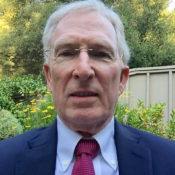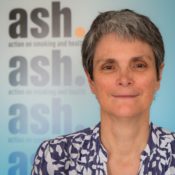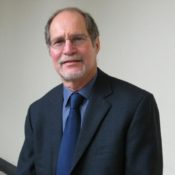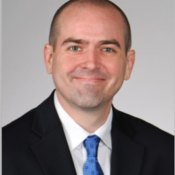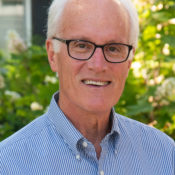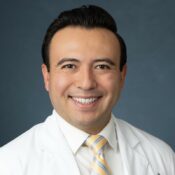SPEAKERS 2024
We would like to thank all of our speakers and chairs for their invaluable contributions at the E-Cigarette Summit. We are delighted to be returning to Washington D.C on May 16 2023. The programme is a collaboration between the speakers and many others who offer their time and expertise to create an informative and thought-provoking programme.
All speakers are scheduled to present in-person, but the Summit offers a virtual option for those that cannot join us in Washington.
BIOGRAPHIES
Prof Thomas J. Glynn, PhD
Adjunct Lecturer
Stanford Prevention Research Centre, Stanford University School of Medicine
Dr. Glynn is, from 2014 to the present, Adjunct Lecturer, Stanford Prevention Research Center, Stanford University School of Medicine and Executive Team Member, Mayo Clinic Global Bridges Initiative. From 1998 to 2014, he was Director, Cancer Science and Trends and Director, International Cancer Control at the American Cancer Society (ACS). Prior to the ACS, Dr. Glynn was, from 1991 to 1994, Associate Director of the U.S. National Cancer Institute's (NCI) Cancer Control Science Program and, from 1991 to 1998, Chief of the NCI's Cancer Control Extramural Research Branch.. From 1983 to 1991, he was Research Director for the NCI's Smoking, Tobacco, and Cancer Program and from 1978 to 1983, he was a Research Psychologist at the National Institute on Drug Abuse. Dr. Glynn has published widely on cancer and tobacco use prevention and control, both in the scientific literature and for consumer, professional, and patient education. In addition to his work at the ACS and NCI, he has served as a consultant on cancer control and tobacco issues to such groups as the National Academy of Sciences/Institute of Medicine, the National Research Council, the Robert Wood Johnson Foundation, the WHO, a variety of pharmaceutical organizations, and national, state and local governments. He has also served as a Senior Scientific Reviewer for the U.S. Surgeon General's Reports on Tobacco and Health, as Director of the World Health Organization Study of Health, Economic, and Policy Implications of Tobacco Growth and Consumption in Developing Countries, and has been active in tobacco control programs in Eastern Europe, Central America, and India. He is a Fellow of the Society for Research on Nicotine and Tobacco and his awards include the U.S. National Institutes of Health Merit Award, the Polish Ministry of Health Service Award, the Guatemala National Council for Tobacco Prevention and Control Meritorious Service Award, the Society for Research on Nicotine and Tobacco John Slade Award, and the American Society of Preventive Oncology Joseph W. Cullen Memorial Award.
Prof Robin Mermelstein
Distinguished Professor of Psychology and IHRP Director
University of Illinois, Chicago
Robin Mermelstein, PhD. is Distinguished Professor, Psychology Department; Director of the Institute for Health Research and Policy at the University of Illinois at Chicago (UIC), and Co-Director of UIC’s Center for Clinical and Translational Science. Dr. Mermelstein has been active in health-behavior research for 30 years, with continuous NIH funding as a Principal Investigator on grants since 1986. Dr. Mermelstein was acknowledged by the NCI as a Research Pioneer in the Division of Cancer Control and Population Sciences. She is nationally recognized for her expertise in understanding trajectories and developmental patterns of youth tobacco use, for employing novel approaches to studying contextual factors in the development of nicotine dependence and health risk behaviors, for developing innovative health behavior clinical interventions for adolescents and adults, and for methodological issues in conducting tobacco-related research. She has been the PI of several large-scale, multidisciplinary program project and center grants, as well as the Director of a national program or the Robert Wood Johnson Foundation. Dr. Mermelstein has served on many NIH advisory and review committees, including being a former standing member of the NCI-A Cancer Centers review committee; a former member of the External Scientific Advisory Panel for the NCI’s Science of Research and Technology Branch; co-Chair of the NCI’s Tobacco Control Priorities Consultant Group; a former standing member of the National Institute on Drug Abuse’s K-award study section; and a current member of the External Scientific Advisory Board for the Adolescent Brain and Cognitive Development Study (ABCD Study) of NIH. She has been acknowledged for her scientific accomplishments by several national and international research societies, including being named a Fellow of the Association of Psychological Science, a Fellow of the Society of Behavioral Medicine, and a Fellow of the Society for Research in Nicotine and Tobacco. She is a past President of the Society for Research on Nicotine and Tobacco (2015-2016).
Deborah Arnott
Chief Executive
Action on Smoking and Health (UK)
Deborah Arnott is a recognised international expert on tobacco control and the WHO Framework Convention on Tobacco Control, with a particular interest in nicotine regulation and harm reduction. She was a member of the National Institute for Health and Care Excellence committee which developed guidance for England on tobacco harm reduction and of an expert advisory group to the UK’s medicines regulator the MHRA on e-cigarettes. She also has experience of product regulation under the EU General Product Safety Directive having participated in the development of fire safety requirements for cigarettes. Deborah has an MBA from Cranfield, is an honorary Associate Professor at the University of Nottingham, and a member of the Royal College of Physicians Tobacco Advisory Group. She was awarded the Alwyn Smith prize in 2007 by the Faculty of Public Health for her outstanding contribution to public health. Competing Interest: None Stated
Clive Bates
Director
Counterfactual Consulting Ltd
Clive Bates has had a diverse career in the public, private and not-for-profit sectors. He started out with the IT company, IBM, then switched career to work in the environment movement. From 1997-2003 he was Director of Action on Smoking and Health (UK), campaigning to reduce the harms caused by tobacco. In 2003 he joined Prime Minister Blair’s Strategy Unit as a civil servant and worked in senior roles in the public sector and for the United Nations in Sudan. He is now Director of Counterfactual, a consulting and advocacy practice focussed on a pragmatic approach to sustainability and public health.
Prof Neal L. Benowitz MD
Professor of Medicine Emeritus (Active)
University of California, San Franciso
Neal L. Benowitz, MD, is Emeritus Professor of Medicine in the Research Program in Clinical Pharmacology, Division of Cardiology, at the University of California, San Francisco (UCSF). He was Chief of the Division of Clinical Pharmacology and Experimental Therapeutics at UCSF for 35 years. He received his medical degree from the University of Rochester School of Medicine in 1969, following which he served as a resident in internal medicine at the Bronx Municipal Hospital Center from 1969 to 1971. He then completed a postdoctoral fellowship in clinical pharmacology at UCSF and joined the faculty in 1974. His research interests have focused primarily on the human pharmacology and toxicology of nicotine. He has published more than 800 research papers. Dr Benowitz maintains an active clinical practice in cardiovascular medicine and medical toxicology. Dr Benowitz was a scientific editor of the 1988 United States Surgeon General’s Report on Smoking and Health: Nicotine Addiction; a scientific editor of the 2001 NCI Monograph 13 Report on Risks Associated with Smoking Cigarettes with Low Machine-Measured Yields of Tar and Nicotine; and served as section editor for the 2010 Surgeon General’s Report on How Tobacco Smoke Causes Disease. He, has served as a member of the National Institutes of Health Pharmacology Study Section and the FDA Nonprescription Drug and Tobacco Products Science Advisory Committees. He has served as President of the American Society for Clinical Pharmacology and Therapeutics and as President of the Society for Research on Nicotine and Tobacco. Dr Benowitz has received the Ove Ferno, Alton Ochsner, and Rawls-Palmer Progress in Medicine awards, and the Oscar B. Hunter Memorial Award in Therapeutics for his research on nicotine, tobacco, and health, and was the 2002 UCSF Annual Distinguished Clinical Research Lecturer.
Prof Ron Borland
Professor of Psychology - Health Behaviour
School of Psychology, Deakin University
Professor Ron Borland (PhD) joined Deakin University School of Psychology in February 2024. He is transitioning from the University of Melbourne (2019-2024). Prior to that he was the Nigel Gray Distinguished Fellow in Cancer Prevention, at The Cancer Council Victoria, Australia where he worked for 33 years. He has published over 500 peer-reviewed papers mostly on aspects of tobacco control. He has been listed in the Web of Science list of the World’s most influential scientists. He is one of the Principal Investigators of the International Tobacco Control Policy Evaluation Project: an international collaboration that is analysing the impact of policies on smoking. He has a special interest in harm minimisation strategies and strategies to assist highly disadvantaged, high risk prevalence groups. He takes a systems approach to theorising that integrates individual level and population level change. He is the author of CEOS theory: a comprehensive theory of Hard to Maintain Behaviour Change.
Alex Clark
Chief Executive Officer
CASAA
Alex comes from a background in customer service and logistics. Shortly after discovering the value of Tobacco Harm Reduction, he began volunteering his time for CASAA and was appointed to serve on CASAA’s Board of Directors in 2014, and later that same year was elected as CASAA’s Legislative Director. Alex stepped down from the Board of Directors in January 2016 in order to accept a position as CASAA’s Legislative Coordinator and was promoted by the Board to CEO in March 2017. Alex is responsible for overseeing all of CASAA’s advocacy efforts.
Prof Mike Cummings
Professor, Dep't Psychiatry & Behavioural Sciences
Medical University of South Carolina
Prof Cummings is a Professor in the Department of Psychiatry & Behavioral Sciences at the Medical University of South Carolina where he co-leads the tobacco control research program. Over his nearly 40 year public health career he has published over 620 scientific papers on a wide range of topics including studies evaluating methods for smoking cessation, consumer risk perceptions, evaluations of mass media campaigns, tobacco product marketing, the impact of cigarette design on smoking behaviors, tobacco industry documents, and the impact of public policies on tobacco use behaviors. Dr. Cummings has a Master’s degree and PhD. in Health Education and Health Behavior from the School of Public Health at the University of Michigan. He is currently a Professor in the Department of Psychiatry & Behavioral Sciences and member of the Hollings Cancer Center’s Cancer Prevention and Control Program where he co-leads the tobacco control research program. He joined the MUSC faculty in October 2011 and has been involved in establishing a tobacco dependence treatment service for patients seen in the University hospital and outpatient clinics. Before coming to MUSC, Dr. Cummings worked at the Roswell Park Cancer Institute (RPCI) in Buffalo, New York, where he was a senior research scientist and Chairman of the Department of Health Behavior. Dr. Cummings training and research interests are in the study of health related behaviors, especially tobacco use prevention and cessation. His research is primarily population based with a focus on smoking cessation, consumer risk perceptions, the impact of cigarette design on smoking behaviors, and the evaluation of public policies on tobacco use behaviors. Recognized internationally for his work in tobacco epidemiology and smoking cessation, Dr. Cummings has guided global public policy and regulations in the marketing and distribution of nicotine products. This work has involved designing studies to understand factors involved in predicting uptake and cessation of tobacco use and the testing of interventions to alter tobacco use behaviors at both the individual and population level. In 2002, Dr. Cummings established the International Tobacco Research Policy Evaluation Project (ITC Project) to evaluate the behavioral impacts of national level tobacco control policies implemented as part of the WHO Framework Convention on Tobacco Control (FCTC). This international project began in 2002 and involves over 100 scientific colleagues from more than 20 countries and includes a wide range of research projects ranging from those focused on biological factors that influence tobacco use to the impact of health warnings and public education campaigns on representative populations of smokers
Martin Dockrell
Tobacco Control Programme Lead
The Office of Health Improvement and Disparities (OHID), UK
Martin is Tobacco Control Programme Lead for (OHID) The Office of Health Improvement and Disparities (previously Public Health England). He joined PHE in February after 7 years at Action on Smoking and Health. Martin has worked in Public Health since the mid 1980’s when he was involved in HIV prevention work. He is a fellow of the Royal Society of Public Health.
Associate Prof Abigail Friedman
Associate Professor
Dept of Health Policy & Management, Yale School of Public Health
Abigail S. Friedman is an Associate Professor in the Department of Health Policy and Management at the Yale School of Public Health. Her research focuses on the policy determinants of tobacco use and disparities therein, with the overarching goal of informing and facilitating evidence-based policymaking to improve population health and reduce inequality. A health economist by training, she conducts work in three areas. The first uses quasi-experimental methods to estimate the effects of federal, state, and local policies on conventional and electronic cigarette use, in order to inform more nuanced policymaking that accounts for the differing health impacts of these products. The second line of research considers how new tobacco products and policies are affecting disparities in tobacco use, particularly by socioeconomic status and mental health. Finally, her work on mental health disparities in tobacco use focuses on identifying the drivers behind these differentials as well as potential means to close these gaps, particularly among adolescents and young adults. Dr. Friedman received her undergraduate degree from Columbia University and her Ph.D. in the economics concentration of Harvard University’s Ph.D. Program in Health Policy.
Dr Amanda L. Graham
Chief Health Officer
Truth Initiative
Dr. Graham is Chief Health Officer at Truth Initiative where leads a cross-functional team that develops, evaluates, and disseminates digital programs for tobacco cessation. She is also Professor of Medicine (adjunct) at the Mayo Clinic College of Medicine and Science and Professor of Oncology (adjunct) at Georgetown University Medical Center. For the past 25 years, Dr. Graham’s research has focused on technology-based tobacco cessation interventions for people of all ages. She led the development of the first vaping cessation program for teens and young adults, now in use by over 700,000 young people. A randomized control trial demonstrating its effectiveness among young adults was published in 2021 (results from an adolescent RCT currently under review). She has published over 120 peer reviewed manuscripts, serves on National Institutes of Health study sections and numerous journal editorial boards, and regularly serves as an expert resource for national and local media outlets.
Dr Jamie Hartmann-Boyce
Assistant Professor in Health Promotion and Policy
University of Massachusetts Amherst
Jamie Hartmann-Boyce is an Assistant Professor in the Department of Health Promotion and Policy, UMass Amherst. She’s recently moved from the University of Oxford in the UK, where she retains an honorary contract. She is an expert in evidence synthesis and an editor for Cochrane. She leads multiple high impact Cochrane reviews in the areas of tobacco control and vaping, which have informed international policy and guidelines. She is passionate about the communication of complex information and data to inform policy and public action.
Dr Brian King
Director, Center for Tobacco Products (CTP)
Food and Drug Administration (FDA)
Dr. Brian King was appointed Director of the Food and Drug Administration’s Center for Tobacco Products (CTP) in July 2022. In this position, Dr. King is responsible for assuring that CTP accomplishes its public health goals and for operationalizing the Center’s vision and mission as it implements the Family Smoking Prevention and Tobacco Control Act. Dr. King has worked for nearly two decades to provide sound scientific evidence to inform tobacco control policy and to effectively communicate this information to key stakeholders, including decision makers, the media, and the general public. Prior to joining FDA, he served as the Deputy Director for Research Translation in CDC’s Office on Smoking and Health, and more recently as the Executive Editor of CDC’s Morbidity & Mortality Weekly Report Series. He has authored more than 200 scientific journal articles related to tobacco prevention and control, served as Senior Associate Editor for multiple U.S. Surgeon General’s Reports on tobacco, and was lead author of CDC’s 2014 evidence-based guide, “Best Practices for Comprehensive Tobacco Control Programs.” Dr. King holds a Ph.D. and M.P.H. in Epidemiology from the State University of New York at Buffalo.
Prof David Levy
Professor of Oncology
Lombardl Comprehensive Cancer Center, Georgetown University
David Levy has a PhD in Economics from UCLA and is currently a Professor of Oncology at Georgetown. He has published over 300 papers, including articles in the American Economic Review, American Journal of Public Health, JAMA, Lancet, Medical Care, American Journal of Preventive Medicine, Tobacco Control, Nicotine and Tobacco Research and the Review of Economics and Statistics. His work spans topics in public health and industry behavior. Dr. Levy has been the principal investigator of grants from the Centers for Disease Control and Prevention, the World Health Organization, the National Cancer Institute, the National Institute on Drug Abuse, Bloomberg/Gates Foundation, European Union, and the Robert Wood Johnson Foundation. He is currently the principal investigator of an FDA TCORS, and is a principal investigator on grants from the National Cancer Institute to the ITC project and to the CISNET Lung group. Dr. Levy oversees the design and development of the SimSmoke tobacco policy simulation model, which predicts the effect of tobacco policies, such as tax increases, smoke-free air laws, media campaigns, youth access policies, and cessation treatment policies, on smoking rates and tobacco-related deaths. He has developed models for 12 states and more than 60 countries. A version of the SimSmoke that incorporated the use of smokeless tobacco. He is currently developing simulation models that incorporate the use of e-cigarettes, including his most recent Smoking and Vaping Model (SAVM).
Professor Ann McNeill
Professor of Tobacco Addiction
Institute of Psychiatry, Psychology & Neuroscience,, Kings College London
Ann McNeill is a Professor of Tobacco Addiction in the National Addiction Centre at the Institute of Psychiatry, Psychology & Neuroscience, King’s College London. She graduated from the University of Nottingham with a first class joint honours degree in zoology and psychology and then carried out her PhD at the Institute of Psychiatry focusing on the development of dependence on smoking. Since that time Ann has held a variety of academic and public sector posts focusing largely on tobacco control research. She has published more than 450 peer-reviewed publications and her research ranges across prevention, cessation, harm reduction and local, national and international policy. Ann has a particular interest in the relationship between smoking, mental health and inequalities and Co-Chairs a national Mental Health and Smoking Partnership led by the charity Action on Smoking and Health. Ann has been the recipient of several awards including receiving a World Health Organisation World No Tobacco Day award for contributions to tobacco control in 1998 and in 2020, the Doll-Wynder Award by the Society for Research on Nicotine and Tobacco. Competing Interest: None Stated
Dr Rafael Meza
Distinguished Senior Scientist
Integrative Oncology, BC Cancer Research Institute
Dr. Meza's research interests lie at the interface of epidemiology, biostatistics and biomathematics. He is an expert in lung cancer epidemiology and prevention and tobacco epidemiology and control. The goal of his research program is to characterize the impact of disease prevention and control interventions, informing stakeholders and policy makers as to the most effective and efficient ways to improve population health. In particular, he is interested in cancer risk assessment and the analysis of cancer epidemiology data using mechanistic models of carcinogenesis. He is also interested in the mathematical modeling of chronic and infectious disease dynamics and its applications in disease prevention public health policy design. Dr. Meza is Coordinating Principal Investigator of the Cancer Intervention and Surveillance Modeling Network (CISNET<https://cisnet.cancer.gov/lung/>) Lung Working Group and Principal Investigator of the Center for the Assessment of Tobacco Regulations (CAsToR<https://tcors.umich.edu/>). Prior to joining BC Cancer, Dr. Meza was Professor of Epidemiology and Global Health at the University of Michigan and co-Leader of the Cancer Control and Population Sciences of the Rogel Cancer Center.
Tim Phillips
Managing Director
ECigIntelligence
The founder and managing director of ECigIntelligence, Tim is a UK-qualified attorney, having worked at the European Commission, BSkyB and Herbert Smith (an international law firm), AOL Europe, as director of public affairs at Betfair (IPO in 2010 valued at £1.5bn), and as a partner in a New York VC-funded start-up in the diamond sector. Tim holds a Postgraduate Diploma in Legal Practice from the University of Law, London and a Masters in Geology from Oxford University.
Dr. Nancy A. Rigotti, MD
Professor of Medicine, Harvard Medical School
Director, Tobacco Research & Treatment Center, Massachusetts General Hospital, Boston
Nancy Rigotti, MD, is a Professor of Medicine at Harvard Medical School, Associate Chief of the Division of General Internal Medicine at Massachusetts General Hospital (MGH), founder and director of MGH’s Tobacco Research and Treatment Center, as well as Past President of the Society for Research in Nicotine and Tobacco and Past President of the Society of General Internal Medicine. Dr. Rigotti is known for her leadership to incorporate the delivery of tobacco use treatment into routine health care delivery settings. She led JAMA’s 2022 Clinical Review, Treatment of Tobacco Use and co-led the American College of Cardiology’s Consensus Decision Pathway on Tobacco Cessation Treatment. Her research includes evaluations of tobacco control public policies, clinical trials of behavioral and pharmacologic smoking cessation treatments, and evaluation of system-level interventions for various inpatient and outpatient health care settings in the U.S. and globally. Dr. Rigotti was a member of the committee that produced the 2018 U.S. National Academies of Science, Engineering, and Medicine Report, Public Health Consequences of Electronic Cigarettes. Her subsequent research on this topic has addressed the role of e-cigarettes for smoking cessation and harm reduction and interventions to assist e-cigarette users to quit.
Prof Scott Sherman
Professor of Population Health, Medicine and Psychiatry
NYU Grossman School of Medicine
Dr. Sherman is currently a Professor of Population Health, Medicine and Psychiatry NYU Grossman School of Medicine. He received his MD from NYU School of Medicine and completed an MPH in Epidemiology/Biostatistics at Boston University School of Public Health. He is a practicing physician in internal medicine and geriatrics and sees patients at the Veterans Health Administration (VA) in New York. His research studies have focused on how to redesign health care systems to better help people quit smoking. He is particularly focused on population health studies, examining the effectiveness of interventions in routine practice, as well as how to disseminate and implement them. He is currently studying the use of text messaging to support smoking cessation and behavioral economic strategies to help increase the use of tobacco cessation treatment. In addition, he is studying the impact of e-cigarettes for harm reduction in smokers with comorbid condition, such as chronic obstructive pulmonary disease or coronary artery disease. He has over 200 peer-reviewed publications in scientific journals and is currently leading 5 large grants, with funding from the National Institutes of Health, the VA and foundations. Dr Sherman is currently starting a research center at NYU School of Medicine focused on the health impact of vaping (either nicotine or cannabis).
Ruoyan Sun
Assistant Professor, Department of Health Policy & Organization
School of Public Health, University of Alabama at Birmingham
Dr Sun is an Assistant Professor with the Department of Health Policy and Organization at UAB. She received her training in health economics and operations research/decision sciences. Dr Sun applies a variety of quantitative methods in her research, including agent-based modeling, econometric methods, social network analysis, mathematical modeling and optimal control, to study health behaviors and evaluate public health interventions. Her main research interests include tobacco control, youth electronic cigarette use, infectious disease modeling, and substance use and addiction. She has published in leading journals in her field, such as JAMA Pediatrics, JAMA Network Open, Addiction, Nicotine and Tobacco Research, and Journal of Medical Internet Research. Her studies have been covered by national media outlets such as the Washington Post, the New York Times, and United Press International. Dr. Sun received her undergraduate degree from College of William and Mary, a master’s degree from Johns Hopkins University and her Ph.D. from the University of Michigan.
Prof Benjamin A. Toll
Professor of Public Health Sciences & Psychiatry
Medical University of South Carolina
Dr. Benjamin Toll is a licensed clinical psychologist, a Professor of Public Health Sciences and Psychiatry, the Vice Chair of Research for the Department of Public Health Sciences, and the Associate Director of Education and Training and Co-Director of the Lung Cancer Screening Program at MUSC Hollings Cancer Center, and Director of the MUSC Health Tobacco Treatment Program at the Medical University of South Carolina. Dr. Toll has received grants from the US National Institutes of Health, including multiple R01 grants from the National Cancer Institute, and he is an author of 145 peer-reviewed publications relating to nicotine and tobacco research, including several large clinical trials investigating smoking cessation published in first tier medical (e.g., Journal of the National Cancer Institute, Journal of Thoracic Oncology) and psychology journals (e.g., Journal of Consulting and Clinical Psychology) and several pilot clinical trials testing treatments for e-cigarette use. Moreover, Dr. Toll has published multiple papers in first tier medical journals using nationally representative data showing that most e-cigarette users plan to quit vaping (in JAMA Network Open, Tobacco Control) and that e-cigarettes are used more than cigarettes by 18-24 year-olds in the US (in JAMA Internal Medicine), forecasting a future in which e-cigarettes are the dominant tobacco product in the US. He has 20 articles published in high-impact journals (Impact Factor > 10), including multiple Clinical Practice Guidelines and official policy statements from major medical associations. He has served as an author for the American Association for Cancer Research (AACR) policy statement encouraging physicians to provide tobacco treatment for cancer patients, the American Thoracic Society's (ATS) Clinical Practice Guideline for treatment of tobacco dependent adults, and the AACR and American Society of Clinical Oncology (ASCO) policy statement on Electronic Nicotine Delivery Systems (ENDS). He is currently Co-Chairing a Clinical Practice Guideline for CHEST that will focus on treatment guidelines for hospitalized patients who smoke. He holds leadership positions in national associations relating to nicotine and tobacco research. Dr. Toll is the President of the Society for Research on Nicotine and Tobacco (SRNT) and a member of the AACR Tobacco and Cancer Subcommittee.
Assoc Prof Andrea Villanti
Associate professor in the Department of Health Behavior, Society, and Policy
Rutgers School of Public Health
Andrea Villanti, Ph.D., M.P.H., is Deputy Director of the Rutgers Institute for Nicotine & Tobacco Studies and an associate professor in the Department of Health Behavior, Society, and Policy at the Rutgers School of Public Health. Previously, Dr. Villanti served on the faculty at the Johns Hopkins Bloomberg School of Public Health and the University of Vermont and as Director for Regulatory Science and Policy in the Schroeder Institute for Tobacco Research and Policy Studies at Truth Initiative. Dr. Villanti’s research focuses on young adult tobacco use including predictors and patterns of use and interventions to reduce tobacco use in young adults. She received her doctorate in social and behavioral sciences from Johns Hopkins University and her Master of Public Health degree from Columbia University. Research Interests Dr. Villanti’s primary focus is on young adult tobacco use, including predictors and patterns of use and interventions to reduce tobacco use in young adults. She also has expertise in population surveillance of tobacco and substance use and translational research to improve substance use-related policy and program decision-making, including tobacco regulatory science.
Prof Kenneth E. Warner
Avedis Donabedian Distinguished University Professor Emeritus and Dean Emeritus
School of Public Health, University of Michigan
Kenneth E. Warner is the Avedis Donabedian Distinguished University Professor Emeritus and Dean Emeritus at the University of Michigan School of Public Health. A member of the faculty from 1972-2017, he served as Dean from 2005-2010. He is currently a co-investigator in the University’s NCI-FDA funded Center for the Assessment of Tobacco Regulations. Presented in over 300 professional publications, Dr. Warner’s research has focused on economic and policy aspects of tobacco and health. Dr. Warner served as the World Bank’s representative to negotiations on the Framework Convention on Tobacco Control, the World Health Organization’s first global health treaty. He also served as the Senior Scientific Editor of the 25th anniversary Surgeon General’s report on smoking and health. From 2004-2005 he was President of the international Society for Research on Nicotine and Tobacco (SRNT). He recently completed a term on the U.S. Food and Drug Administration’s Tobacco Products Scientific Advisory Committee. Dr. Warner currently serves as an elected member of the Board of Trustees of Northwestern Michigan College. In 1996 Dr. Warner was elected to the National Academy of Medicine. Among other honors and awards, he is a recipient of the Surgeon General’s Medallion, the Luther Terry Award for Exemplary Achievement in Tobacco Control, and the Doll-Wynder Award from SRNT. Dr. Warner earned his AB from Dartmouth College and MPhil and PhD in economics from Yale University.
Dr. Brian Yagi, M.D.,J.D.
Assistant Professor of Internal Medicine
Johns Hopkins School of Medicine
Trained as a physician and a lawyer, Dr. Yagi is interested in a broad array of health policy topics at the intersection of medicine and law. His experience in FDA’s Office of Policy and Planning has led to a passion about how FDA can regulate the wide variety of products under its purview, as well as how to improve the agency’s impact through the creation of novel, flexible regulatory pathways. His interest in life sciences research and development policy was reinforced during his time working for the National Institutes of Health (NIH), where he both participated in translational clinical research and learned about other novel approaches to research while serving as a policy intern for the Office of the NIH Director. Professionally, he is board certified in internal medicine and works clinically as a hospitalist at the Johns Hopkins Hospital in downtown Baltimore, Maryland, where he is a tenure-track Assistant Professor in the Johns Hopkins School of Medicine.
Ben Youdan
Director
ASH New Zealand
Ben Youdan started his career running the UK’s No Smoking Day Campaign in the early 2000’s before moving to Aotearoa New Zealand in 2006 to take on the role of ASH Director. He worked on the campaign for the Smokefree 2025 goal, and the policy steps to accompany it. In 2013 he took time out of tobacco control to work as the election campaign director for the New Zealand Green Party, and setting up a community led social change project in highly deprived communities in South Auckland. After working with these communities where vaping was disrupting generations of smoking, he returned to ASH with a particular interest in harm reduction as a tool to reduce inequity, and achieve Aotearoa New Zealand’s smokefree 2025 goal. He currently splits his time between ASH, and as policy adviser to the New Zealand Heart Foundation.
Mitch Zeller J.D
Retired Director, Center for Tobacco Products (CTP)
The Food & Drug Administration (FDA)
Mitch Zeller, J.D., was the director of the FDA’s Center for Tobacco Products from March 2013 through April 2022. The mission of CTP—established by enactment of the 2009 Family Smoking Prevention and Tobacco Control Act—is “to make tobacco-related death and disease part of America’s past, not America’s future, and, by doing so, ensure a healthier life for every American family.” As Center Director, Zeller led FDA’s efforts to use the tools of product regulation to reduce disease and death from tobacco use and bring previously unavailable information about its dangers to light. Zeller, a graduate of Dartmouth College and the American University Washington College of Law, worked on FDA issues from 1982 until his retirement in 2022. He began his career as a public interest attorney in 1982 at the Center for Science in the Public Interest (CSPI). In 1988, Zeller left CSPI to become counsel to the Human Resources and Intergovernmental Relations Subcommittee of the House of Representatives Government Operations Committee where he conducted oversight of enforcement of federal health and safety laws. In 1993, Zeller joined the staff of then-FDA Commissioner Dr. David Kessler, M.D. What began as a two-week assignment by Kessler in 1994 to examine the practices of the tobacco industry led to his serving as associate commissioner and director of FDA’s first Office of Tobacco Programs. Instrumental in crafting the agency’s 1996 tobacco regulations, Zeller also represented FDA before Congress, federal and state agencies. Zeller also served as an official U.S. delegate to the World Health Organization (WHO) Working Group for the Framework Convention on Tobacco Control. In 2000, Zeller left FDA to continue his work for tobacco control as executive vice president of the American Legacy Foundation. His responsibilities there included marketing, communications, strategic partnerships, and creating the foundation’s first Office of Policy and Government Relations. In 2002, Zeller joined Pinney Associates where, as senior vice president, he provided strategic planning and communications advice on domestic and global public health policy issues involving the treatment of tobacco dependence and the regulation of tobacco products and pharmaceuticals. He left Pinney Associates in 2013 upon his return to FDA as Center Director. Mitch Zeller currently serves as an advisor to Qnovia, Inc. a start-up pharmaceutical company developing an inhaled smoking cessation product that it intends to seek FDA authorization for marketing.
If you cannot see the full list of speakers required for this page please make sure you have ordered all speakers in your custom list.
Edit Custom Order Here »
Only administrators can see this message



